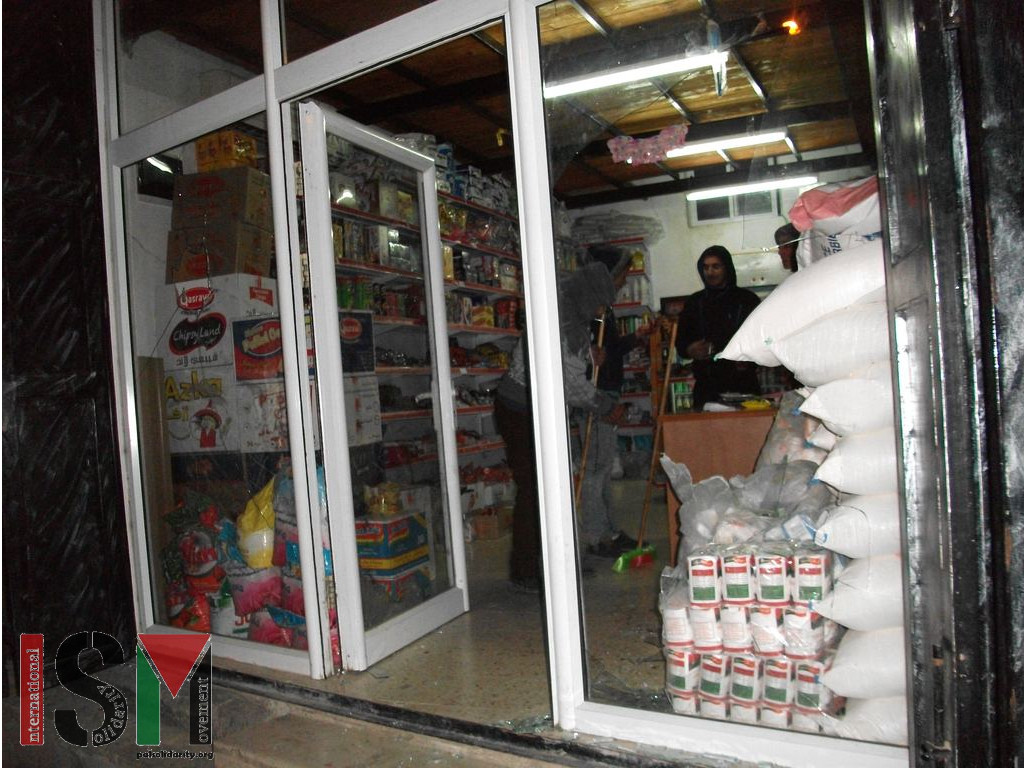-
There is Only One Struggle
28th November 2016 | International Solidarity Movement, al-Khalil team | occupied Palestine and Standing Rock Sometime after 9-11 U.S. police departments (State, local, & Sheriff’s Departments) along with many U.S. governmental law enforcement agencies such as Homeland Security, the FBI, and Border & Customs Police began to send their officers to Israel for training with […]
-
Shop owner in Hebron got both his front-windows smashed by celebrating settlers.
27th November 2016 | International Solidarity Movement, Hebron/al-Khalil team | occupied Palestine This week-end in al-Khalil brought thousands of extremist Jews and settlers from all over Israel and abroad to celebrate the week’s Torah study on Chayei Sara (Live of Sarah), where Abraham purchases the cave of Machpelah (of which they think is in al-Khalil) […]
-
Not business as usual: colonial settlers in al-Khalil for Jewish festival
27th November 2016 | International Solidarity Movement, al-Khalil team | Hebron, occupied Palestine The Jewish holiday/celebration of Chayei Sarah and the reading of the Torah regarding Sarah took place in occupied al-Khalil (Hebron) on 25th and 26th November 2016. Beginning of Friday hundreds of Jews from illegal colonial settlements within the West Bank as well […]
Action Alert An Nabi Saleh Apartheid Wall Arrests BDS Bethlehem Bil'in Cast Lead Demonstration Denial of Entry Ethnic Cleansing Farmers Gaza Global Actions Hebron House Demolition International law Israeli Army Jerusalem Live Ammunition Nablus Ni'lin Prisoner Ramallah Rubber-coated steel bullets Settlement Settlers Settler violence Tear-Gas Canister Video



